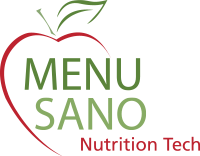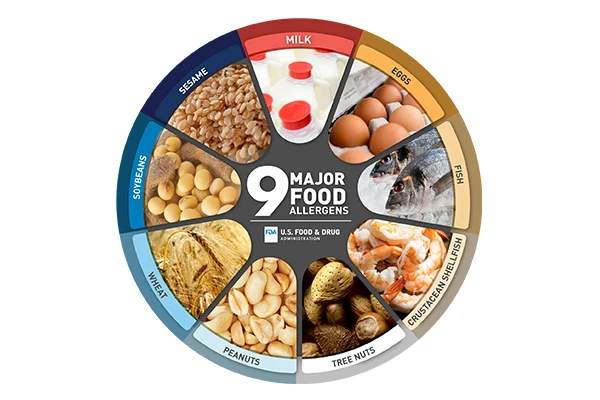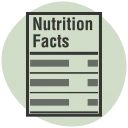Food allergens can significantly impact individuals’ lives, requiring strict avoidance of specific allergenic ingredients. In April 2021, President Biden took a significant step toward improving food allergy safety by signing the Food Allergy Safety, Treatment, Education, and Research (FASTER) Act into law. This act amended the Food Allergen Labeling and Consumer Protection Act (FALCPA) of 2004. The FASTER Act expanded the list of major allergens, adding sesame as a recognized allergen and reinforcing the inclusion of the existing major allergens such as milk, eggs, fish, crustacean shellfish, tree nuts, peanuts, wheat, and soy. This amendment was pivotal in enhancing food allergy awareness, management, and research, providing individuals with allergies and their families with increased protection and improved access to vital information about allergenic ingredients. The FASTER Act signifies a commitment to ensuring the safety, treatment, education, and research surrounding food allergies, benefiting millions of affected individuals.
In this blog post, we will explore the nine major allergens according to the FASTER Act and the importance of understanding and managing these allergens.
Milk
Milk has long been recognized as a major allergen and continues to be included on the list. It encompasses cow’s milk and milk from other mammals, such as goats and sheep.
Eggs
Eggs are a common allergen, particularly the proteins found in egg whites. The FASTER Act reaffirms the inclusion of eggs as a major allergen, emphasizing the need for proper labelling and avoidance.
Fish
Fish allergies can cause severe reactions in some individuals. The FASTER Act recognizes fish as a major allergen, encompassing a variety of species, including commonly consumed fish such as salmon, tuna, and cod.
Crustacean Shellfish
Crustacean shellfish, including shrimp, crab, lobster, and crayfish, have long been recognized as major allergens. The FASTER Act reinforces the importance of proper labelling and allergen management for these ingredients.
Tree Nuts
Tree nuts, such as almonds, walnuts, cashews, and pistachios, have been traditionally recognized as major allergens. The FASTER Act maintains the inclusion of tree nuts, highlighting their potential to cause severe allergic reactions.

Peanuts
Peanuts, which are legumes rather than nuts, have long been known to trigger allergic reactions. The FASTER Act reaffirms the inclusion of peanuts as a major allergen due to their high allergenic potential.
Wheat
Wheat has been recognized as a major allergen for individuals with wheat allergies and gluten-related disorders. The FASTER Act emphasizes the importance of proper labelling and allergen management for wheat-containing products.
Soy
Soy has been a well-known allergen, affecting individuals across various age groups. The FASTER Act reinforces the inclusion of soy as a major allergen, prompting heightened awareness and proper labelling practices.
Sesame
As of January 1, 2023, the FASTER Act represents a significant expansion of major allergens, including sesame. Sesame seeds and sesame oil can trigger allergic reactions in susceptible individuals. Recognizing sesame as a major allergen requires increased awareness and accurate labelling.
Importance of Understanding and Managing Major Allergens
Recognizing and properly managing major allergens is crucial for the safety and well-being of individuals with food allergies. It is essential for consumers to read ingredient labels carefully, be aware of potential allergenic ingredients, and take necessary precautions to avoid exposure. For food manufacturers and food service establishments, it is vital to implement robust allergen management protocols, prevent cross-contamination, and provide accurate labelling to ensure consumers’ food allergies’ safety.
The FASTER Act has expanded the list of major allergens, underscoring the importance of increased awareness and accurate labelling to protect individuals with food allergies. Understanding and properly managing major allergens is crucial for individuals, food manufacturers, and food service establishments. By remaining vigilant, reading labels diligently, and implementing stringent allergen management practices, we can create a safer and more inclusive environment for individuals with food allergies.
If you’re looking to build nutrition labels with full allergen lists, give MenuSano a try. It’s the fastest and easiest way to create compliant nutrition labels. Start a free trial today!


















